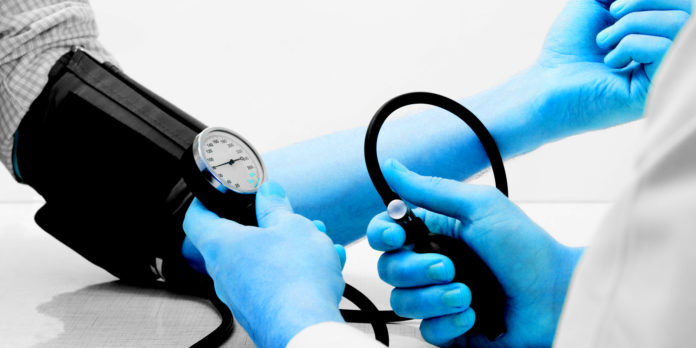One in every eight people in India above 30 years of age has high blood pressure, according to Union health ministry
Every eighth Indian above 30 years of age has high blood pressure, according to a Union health ministry preventive health programme that screened 22.5 million adults across 100 districts in India in 2017.
This is a significant increase from the one-in-every-11 number thrown up by the National Family Health Survey (2015-16). NFHS-4 data had shown that 8.8% women and 13.6% men have higher than the recommended levels of blood pressure.
But what’s more alarming is that most of the 2.25cr adults screened reside in rural areas; till now, such health conditions were largely an urban problem.
A systolic blood pressure equal to or above 140 mm Hg and/or diastolic blood pressure equal to or above 90 mm Hg was considered as hypertension according to Indian guidelines.
The first phase of the preventive program which started earlier this year, studied trends in 100 districts, mostly primary health centers. It screened the population for common non-communicable diseases (NCDs) like hypertension/chronic high BP, diabetes and various cancers in people over 30 years of age. The screening programme will be scaled to 500 million people across the country in the next phase.
A systolic blood pressure equal to or above 140 mm Hg and/or diastolic blood pressure equal to or above 90 mm Hg was considered as hypertension according to Indian guidelines.
The numbers could be much higher if blood pressure parameters prevalent in most developed countries were followed. American College of Cardiology and American Heart Association, categorizes high blood pressure as greater than 130/80 mmHg.
Hypertension is called as a ‘’silent killer’’ because most people don’t have any symptoms before some damage to some organ has occurred. When present, symptoms include headache, shortness of breath, dizziness, chest pain, palpitations of the heart and nosebleeds etc.
Some of the most common causes of hypertension include a sedentary lifestyle, unhealthy diet that is high in sodium, excessive stress and high consumption of alcohol. Untreated hypertension can lead to heart attack, kidney failure, blindness, rupture of blood vessels causing stroke and cognitive impairment.
A recent nationally representative study carried out in India, by researchers of Harvard T.H. Chan School of Public Health which was published on January 29, 2018 in JAMA Internal Medicine had reported that more than one in five Indian had hypertension (prevalence of hypertension was 20.0% among women and 24.5% among men). In the poorest households of rural areas, the prevalence was even higher at 30%.
“Diagnosis of hypertension and diabetes is straightforward but mostly untapped due lack of awareness and regular medical checkups. India needs to focus on these two silent killers as well as other non-communicable diseases to reduce the burden of preventable premature morbidity and mortality. If unchecked, we will see a lot more victims of these two diseases in next two decades,” said Ashish Awasthi, co-author and faculty at the Indian Institute of Public Health, Gandhinagar, India, while commenting on the Harvard study.
The key to preventing hypertension is balanced diet including adequate quantity of fruits and vegetables especially those rich in potassium, avoiding processed foods, cutting back on salt and alcohol, regular exercise, and maintaining a healthy weight.
The action plan for NCD prevention aims to reduce hypertension and death from heart disease by 25%, and lower salt/sodium intake by 30%.
The Indian Council of Medical Research is leading the India Hypertension Management Initiative, under which a standard drug protocol has been created.They are now planning disbursing medicines in areas where screening has been done.Punjab, Kerala and MP have been covered. Telangana and Maharashtra are next.


